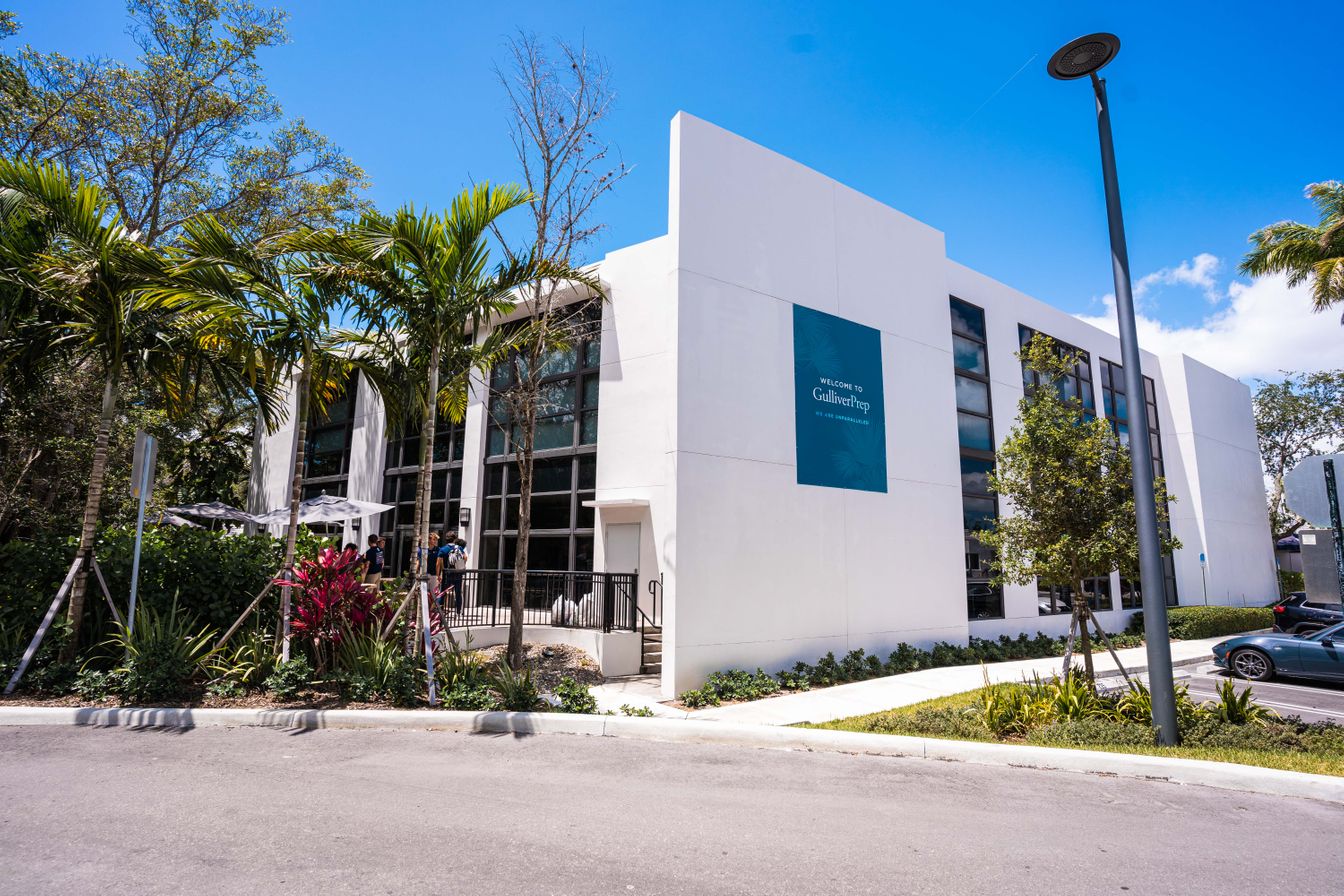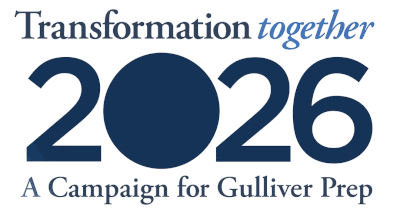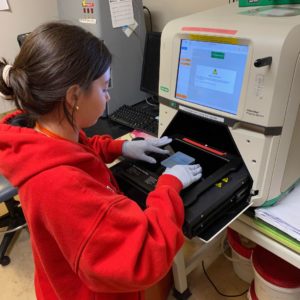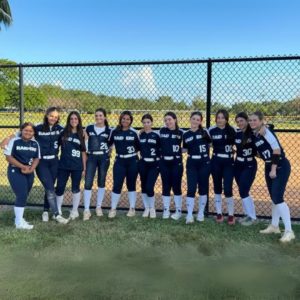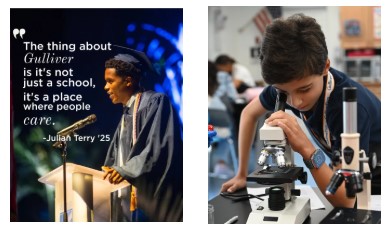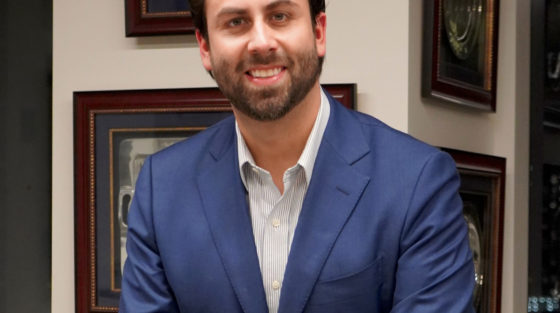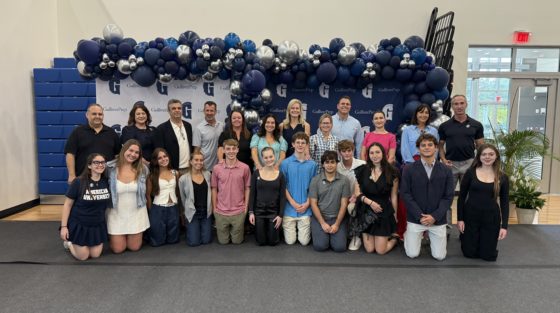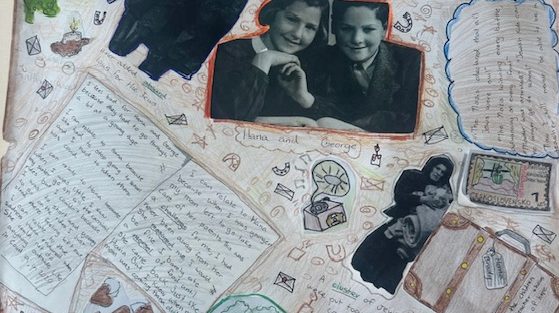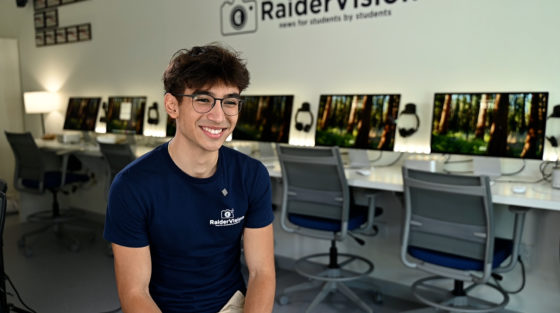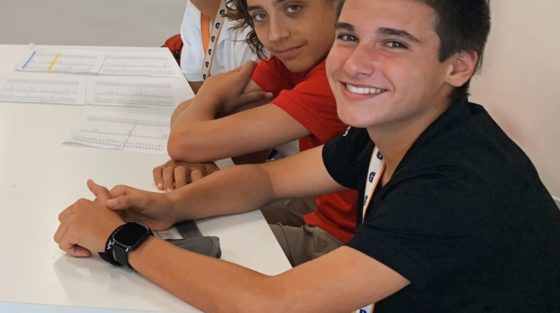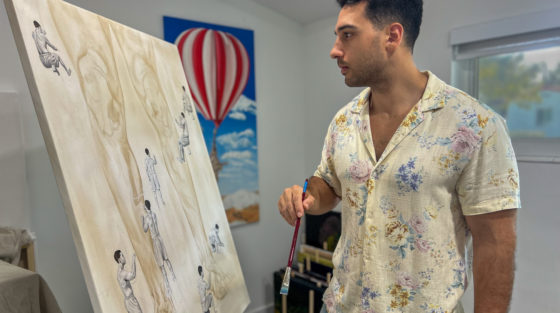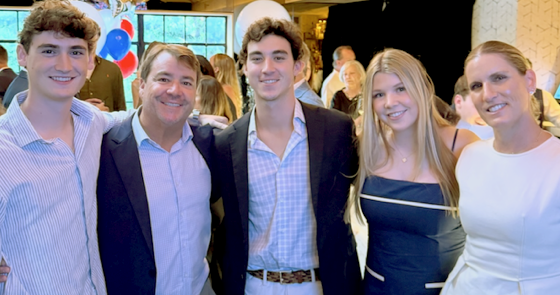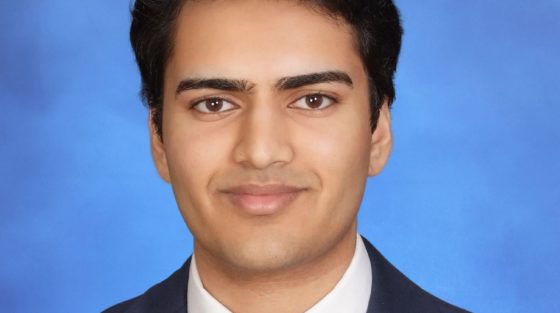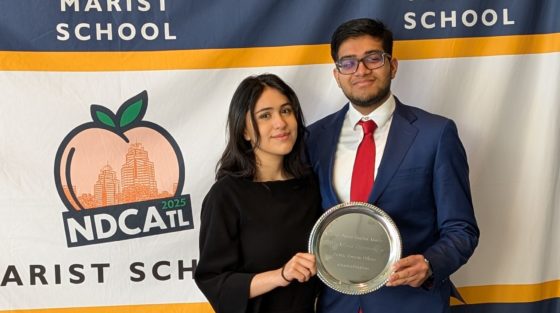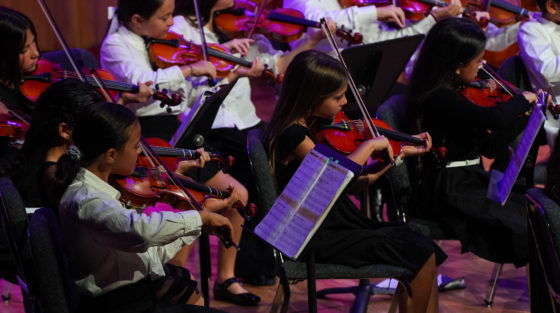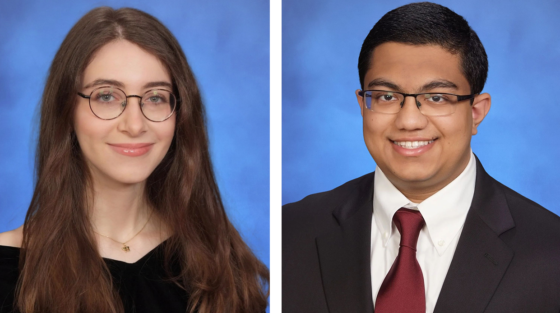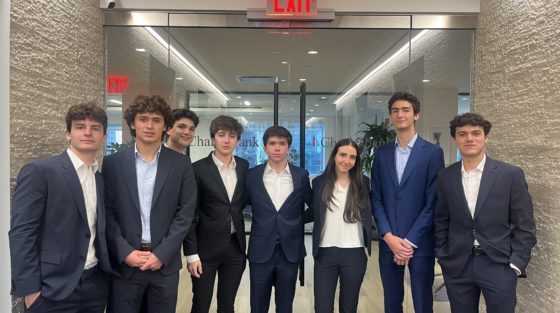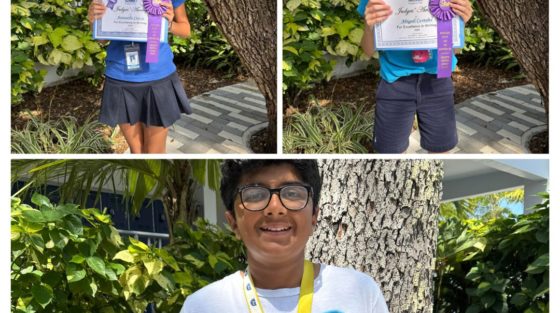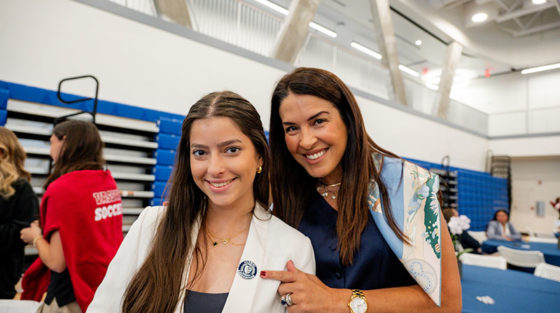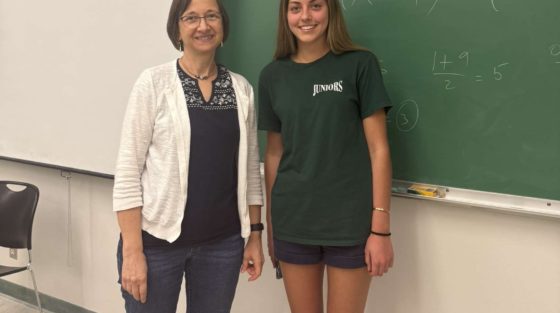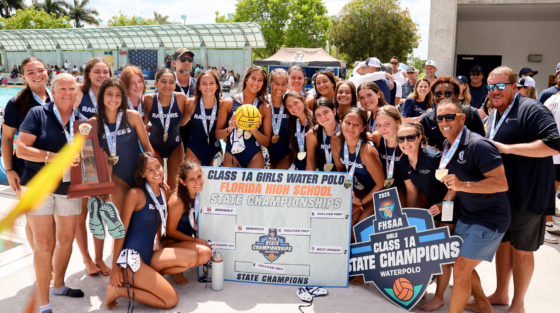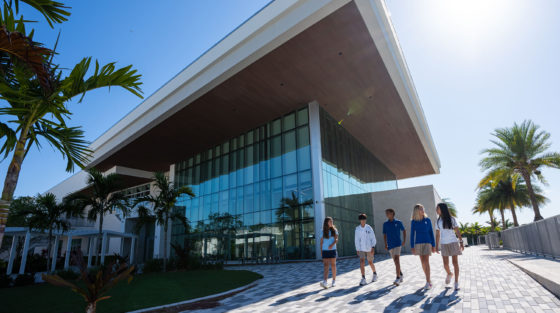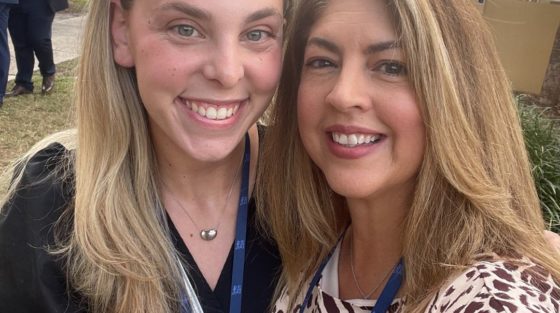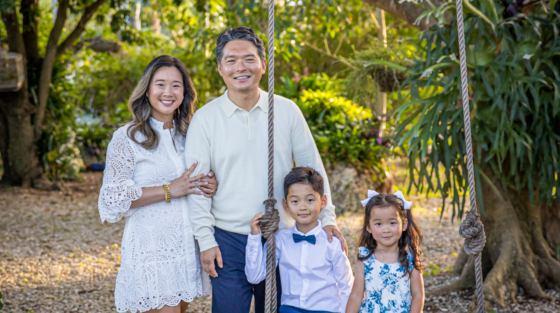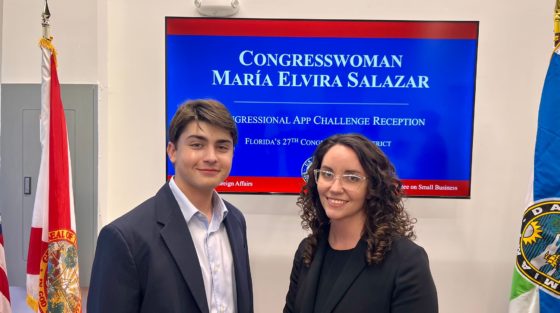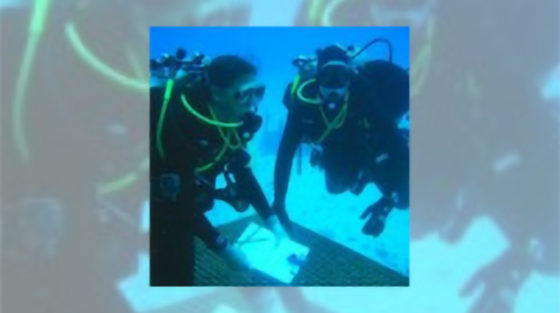At Gulliver Prep, our students blaze new trails and venture into uncharted territories with open minds. Bella Burns ‘25, a biomedical sciences student, embodies this spirit of pioneering excellence through her recent work in the JJ Vance Memorial Summer Internship at the University of Miami. Her project, titled “Investigating Regulatory Mechanisms of ApoE Expression Across Different Ancestries,” focused on advancing our understanding of Alzheimer’s Disease, standing as a testament to her commitment to innovation.
Bella’s dedication to neuroscience was deeply influenced by her grandfather’s diagnosis with dementia, fueling her interest in the molecular mechanisms behind neurological disorders. Her research explored how ApoE gene expression is regulated differently across various ancestries, aiming to address the underrepresentation of Hispanic and African American populations in Alzheimer’s research.
Read on to learn more about Bella’s research experience, how her time at Gulliver Prep has influenced her, and her future aspirations.
What inspired you to delve into Alzheimer’s Disease research during the JJ Vance Memorial Summer Internship, and how did you choose the specific topic of “Investigating Regulatory Mechanisms of ApoE Expression Across Different Ancestries”?
For the longest time, I have been incredibly interested in cell and molecular biology, as well as neurobiology in general. After my grandfather was diagnosed with dementia, I found myself wanting to delve deeper into neurological diseases, specifically understanding the molecular processes behind them. The internship gave me the opportunity to dive into my passion for science, at the same time granting me an outlet to explore the questions I had about my grandfather’s diagnosis. The topic of regulatory mechanisms in relation to ApoE gene expression stemmed from long hours of investigation into certain regions of our DNA, specifically regions that could limit the expression of that gene. It had been found in prior research that a certain variation of the ApoE gene greatly increased the risk of developing Alzheimers, therefore any mechanisms that could limit the expression would be important to identify and pursue in further research projects. It was especially important to look at this gene in the context of different ancestries because regulatory mechanisms vary across populations. Hispanic and African American populations are widely underrepresented in research, and when studied provide valuable data that can be used alongside European ancestral data to develop a treatment for Alzheimer’s that is adaptable to different populations.
Can you describe the key findings of your research on the impact of APOE4 on lipid metabolism in Alzheimer’s and their significance in the field of biomedical science?
My research was targeted towards identifying and verifying the role of a certain regulatory region connected to ApoE. The region was removed in different European and African stem cell lines (both of which were homozygous for the ApoE4 allele) using CRISPR, a technology that selectively modifies the DNA of living organisms with bacteria-derived enzymes. These lines were differentiated into microglia, the type of brain cell that expresses the most ApoE, and an increase of ApoE expression in only the African line was observed when the regulatory region was deleted. This suggested that this region had repressor activity in the African background. Since those studies were done with only one line of each ancestry, the experiment was repeated in a separate African stem cell line and European stem cell line to confirm that the results were related to African local ancestry rather than being a characteristic of that one individual African line. The fact that there are differences in how genes are regulated in different populations is incredibly significant in the field of biomedical science. These findings will be used in further research as scientists try to better understand the genetic causes of Alzheimer’s Disease and how certain populations are more prone or less prone to developing the disease.
How did your role as a biomed student at Gulliver prepare you for the challenges and opportunities you encountered during your internship?
The biomed program at Gulliver provided me with a backbone that assisted me in understanding a substantial amount of the technical terms used daily by researchers. I found myself surprised at the amount of discussions I could take part in because I had learned about gene therapy, genetics and genetic diseases in class. I had also taken the BACE certification exam through the University of Florida, and was going into my internship with certified technical skills. I knew how to perform serial dilutions, use micropipettes, and perform other biomolecular protocols that allowed me to jump right into the lab when I began my internship. It was honestly surreal to sit in on these big meetings and be able to give my input and actually have a voice in certain aspects of the research process. I definitely owe it to the amazing teachers in the biomed program that have supported my passions and expressed their confidence in my abilities as a scientist.
In addition to your academic and research pursuits, how do you balance your commitments to the softball team and the string ensemble, and how have these activities contributed to your personal and academic growth?
I would be lying if I said it was easy to balance my commitments to sports, academics and music. It takes a lot of organization and consistency. I have to find time to practice ensemble repertoire and solo pieces, make sure my athletic abilities aren’t diminishing in the off seasons, and come home and complete the IB coursework for all my classes. Having all the different facets of my life has actually forced me to develop good study habits as well as good mental health practices. To deal with stress and anxiety, I’ve taken up journaling, meditation and yoga. I reflect on what I’m thankful for, find ways I can make each day better and set a new intention daily, and I’ve found that it really helps to be mindful and understanding of my body’s needs. I’m the starting second baseman on the Varsity softball team and simultaneously the President of the orchestra and I wouldn’t have it any other way.
What are your future goals in the medical field, and how do you see your experiences with research, sports, and music influencing your career path?
I know that as a future physician, I want to research ways to treat patients holistically, not only curing symptoms, but instead helping them to live healthier lives. With increasing rates of diabetes, dementia, cancer, and autoimmune issues across the country, I want to examine environmental factors that can play a role in preventing and treating these illnesses. Music, exercise and learning different languages are some environmental enrichments that recent research has shown to have significant impacts on neurological diseases. I want to be part of that next generation that delves deeper into this research, especially because of my love for music and softball. Being in the lab gives me the same adrenaline rush as making a double play on the field, hitting a line drive or perfectly harmonizing with the players around me in the orchestra. My experience as a JJ Vance Intern has definitely invigorated my desire to be a physician, but it’s also inspired me to pursue research as well. I definitely see myself in a joint MD/PhD program in the future; no matter how long and difficult the road to achieving this aspiration is, I know now that I can accomplish whatever I set my mind and heart on.
Outside of your passion for Alzheimer’s research, what other clubs, sports, or activities are important to you, and how have they contributed to shaping who you are today?
Besides having a deep passion for science, I also have a love of literature and educating others, and finding ways to combine my interests with community service. I’m one of the lead officers of the Together We Innovate club (TWI), a student-run organization that constructs STEM based lessons for children from underserved communities. At the same time, I’m a part of Achieve Miami, an organization that teaches children from underserved areas in Homestead how to read. Being an active and aware member of my community has made me cognizant of the disparities that exist in our social environment, especially when it comes to access to education. I feel like volunteering enables me to connect with people outside my intimate circle of friends and family, and has shaped me into someone who cares deeply about the people around me. This empathy drives me to achieve my goals and strive for excellence in all aspects of my life so that I may one day make a big difference in the lives of others as a physician and change-maker. Apart from community service, I also hold various leadership roles inside Gulliver. I’m the President of the Sociedad Honoraria Hispánica and the Science National Honor Society. In the former, I connect with my hispanic culture while at the same time spearheading collections for hispanic children with disabilities; in the latter, I hope to engage in environmental conservation efforts across South Florida. This past year, I also participated in HOSA and, along with my teammates, placed first in regionals, third in state, and top 30 internationally in the biomedical innovation category. All of the different activities I take part in shape me into a globally conscious individual who values learning, hard work, dedication, and above else soul. I put my heart into everything I do and I hope to carry the lessons I’ve learned throughout my high school career far into the future.
